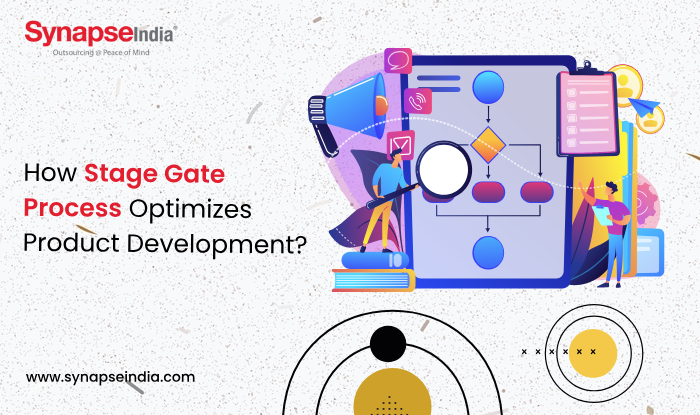 25 Jun 2024
25 Jun 2024
In the era of product development, efficiency and effectiveness are paramount for success. However, navigating the complexities of bringing a product from conception to market can be challenging without a structured approach. This is where the Stage-Gate Process comes into play. The Stage-Gate Process helps organizations optimize their processes, minimize risks, and maximize innovation by providing a systematic framework for managing product development projects. This comprehensive guide will delve into the intricacies of the Stage Gate Process and explore how it can streamline product development to achieve optimal results.

The Stage-Gate Process, also known as the Phase-Gate Process or the New Product Development (NPD) Process, is a structured approach to managing product development projects. It consists of a series of stages, or gates, that must be passed through sequentially, with each stage representing a key milestone in the project's lifecycle.
The Stage-Gate Process typically consists of multiple stages, each representing a distinct phase of the product development lifecycle, such as creativity, concept development, design, testing, and launch.
Gates serve as decision points or checkpoints between stages, where project teams must evaluate the progress of the project, assess risks and resource requirements, and make decisions about whether to proceed to the next stage, pivot or terminate the project.
Effective implementation of the Stage-Gate Process requires cross-functional teams composed of representatives from various departments, including marketing, engineering, finance, and operations, to ensure alignment and collaboration throughout the project.
By breaking the product development process into distinct stages and incorporating gates for evaluation and decision-making, the Stage-Gate Process enables organizations to make informed decisions based on data, feedback, and market insights at each stage of the project.
The Stage-Gate Process allows organizations to identify and mitigate risks early in the product development lifecycle. By conducting thorough assessments and evaluations at each gate, project teams can proactively address potential issues, minimize project delays, and avoid costly mistakes.
By providing a structured framework for resource allocation, the Stage-Gate Process helps organizations allocate resources more efficiently and effectively throughout the product development process. By aligning resources with project priorities and objectives, organizations can optimize resource utilization and maximize ROI.
The Stage-Gate Process fosters a culture of innovation by encouraging creativity, experimentation, and continuous improvement throughout the product development lifecycle. By providing clear guidelines and milestones, the Stage-Gate Process empowers teams to explore new ideas, iterate on concepts, and drive innovation forward.

Before embarking on a product development project, it's essential to define clear objectives and criteria for success. Establishing specific goals, milestones, and success metrics at each stage and gate will provide project teams with clear direction and focus.
Effective implementation of the Stage-Gate Process requires strong collaboration and communication among cross-functional teams. Encourage collaboration and teamwork by fostering an open and inclusive culture where diverse perspectives and ideas are valued.
Leverage data and analytics to inform decision-making throughout the product development process. Collect and analyze relevant data, market insights, customer feedback, and performance metrics to assess project progress, identify opportunities, and make data-driven decisions at each gate.
The Stage-Gate Process is designed to be iterative, allowing organizations to learn from each project and apply insights to future initiatives. Encourage a culture of continuous improvement by conducting post-project reviews, capturing lessons learned, and incorporating feedback to refine and optimize the process over time.
The Stage-Gate Process is a powerful tool for optimizing product development and driving innovation within organizations. By providing a structured framework for managing projects, evaluating progress, and making informed decisions, the Stage-Gate Process enables organizations to streamline their product development processes, minimize risks, and maximize opportunities for success. Embrace the Stage-Gate Process as a strategic approach to product development, and leverage its benefits to achieve optimal results and drive sustainable growth in today's competitive marketplace.
.jpg)
 04 May 2024
04 May 2024
